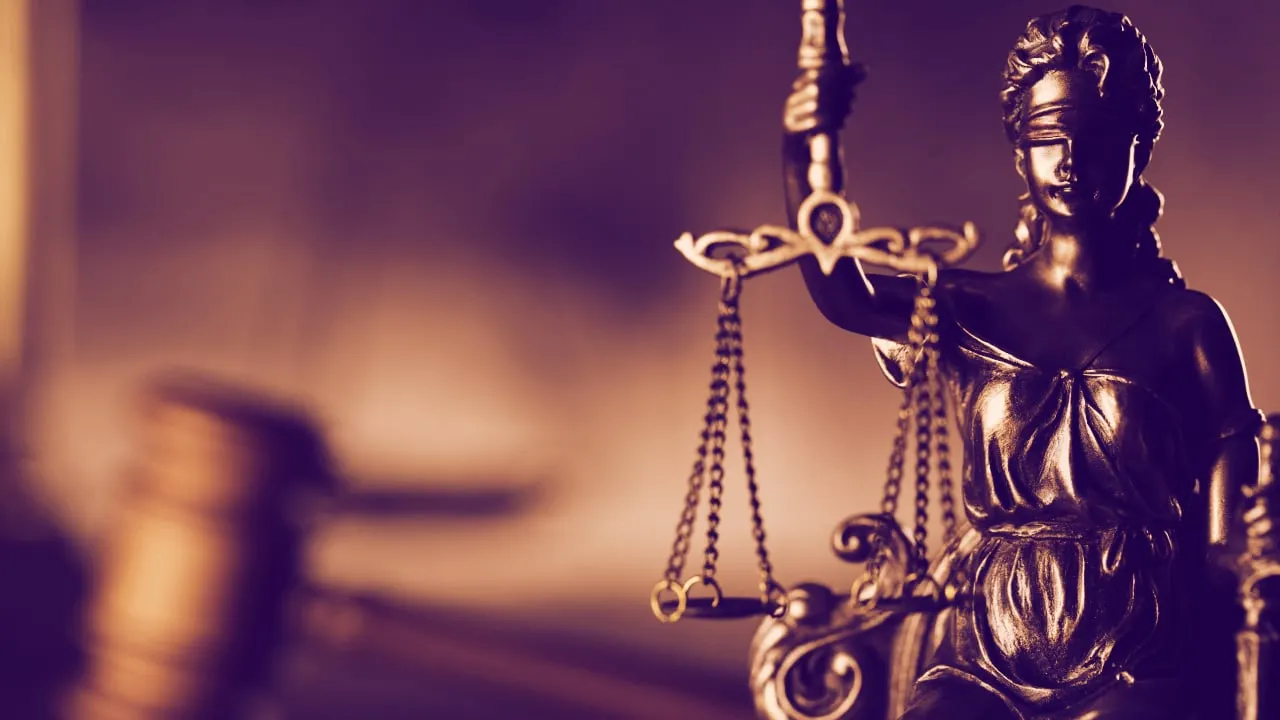In brief
- A judge didn't buy Ripple's request to dismiss a class-action lawsuit against it.
- The judge seemed to assume, for now, that XRP is a security, a lawyer told Decrypt.
- Should the court rule in favor of the plaintiffs, it could have widespread effects on the market.
Ripple Lab Inc., the company behind the XRP cryptocurrency, failed to convince a judge on Wednesday to dismiss a class-action lawsuit that could force the San Francisco-based company to return all of XRP’s investors’ money, and take the coin off the market entirely.
Since XRP is the third-most popular cryptocurrency by market cap and trades almost $3 billion per day, such a ruling could crash the cryptocurrency market. A ruling against Ripple would also set a legal precedent that would make it easier for disgruntled investors to go after the creators of other cryptocurrencies, such as Kik Messenger and Telegram, which are battling similar allegations from the SEC.
The plaintiffs, various disgruntled investors who bought into XRP at an early stage, allege that San Francisco-headquartered Ripple sold them XRP under false pretenses, and that the sale constituted an unregistered securities offering under US law.
They argue that under the decades-old yardstick for determining whether or not an asset constitutes a security, the Howey Test, XRP constitutes a security. And if a cryptocurrency token is an unregistered security, then Ripple’s token sale would have been illegal, and Ripple might have to give investors their money back.
Ripple asked a federal judge in Oakland, California to throw the case out because of the amount of time that has passed since the initial sale: XRP was offered over five years ago. But US District Judge Phyllis Hamilton refused to dismiss the case.
And, what’s more, her arguments for doing so appear to rely on the assumption—for the purposes of this early-stage motion, at least—that XRP does, in fact, constitute a security under US Securities Law, Jason Gottlieb, a partner of Morrison Cohen LLP who’s experienced in crypto litigation, told Decrypt.
In her response to the motion to dismiss, Judge Hamilton refers to a statute of limitations issue under the Private Securities Litigation Reform Act, “which would only apply if XRP were a security,” he said.
Judge Hamilton also evaluated whether Ripple was a “seller” under securities laws, as well as liability issues under federal securities laws. “You wouldn’t be looking at those unless you had determined, for the purposes of this motion, that XRP is a security,” said Gottlieb.
Jake Chervinsky, General Counsel of DeFi product Compound Finance, agreed: “The securities claims survive. XRP stays in the crosshairs,” he tweeted on Wednesday.
Gottlieb pointed out that Judge Hamilton doesn’t exclude an argument against this at a later stage of litigation. But at this stage, “Even Ripple knows that arguing that [XRP] is not a security on a motion to dismiss is a fool's errand,” he said.
The case won’t be settled anytime soon, said Gottlieb. Judge Hamilton invited the plaintiff’s to amend their complaint that Ripple lied to them, but should Judge Hamilton deny another motion to dismiss after that; then to discovery; and then, if things still aren’t resolved, a trial. “It's hard to imagine a trial happening in calendar 2020,” he said. (Of course, the parties could settle at any point).
But should a judge rule that XRP is a security, that could have widespread effects on the cryptocurrency industry—and not just because Ripple might have to give investors their money back. Such a legal precedent could make it easier for investors to claim back billions raised in other token sales, which could also be ruled to constitute unregistered securities offerings.
“XRP is widely traded in the secondary market; it could really create some havoc,” said Gottlieb.
And should financial institutions wish to keep trading securities, financial service firms, like crypto exchanges, investment funds, and trading firms, might be subject to registration and licensing, according to the website of the Crypto Ratings Council, an industry body set up to help crypto startups determine which blockchain-based tokens qualify as securities.
Other major ongoing cases are those levied by the SEC against the blockchain networks of Telegram, the operator of the 300-million-strong messaging app, and Kin, a blockchain network formerly owned by Kik, which coincidentally also runs a messaging app of a similar size. The SEC claims that the $1.7 billion Telegram raised, and the $100 million Kin raised, in ICOs constituted an unregistered securities sale.
Just like the XRP case, if the judge rules in the SEC’s favor, Telegram might have to give investors their money back. It would also create a legal precedent, said Gottlieb, but would come with the SEC’s additional bite of “injunctive relief,” which would prevent Telegram from running token sales in the future.
What it all boils down to is this: should any of these major cases result in a judgment that one of these token sales constitutes an unregistered securities sale, then not only will that affect the other major cases, but the legal precedent developed could make it easier for similar cases to be settled in the future.
Yankun Guo, a lawyer who set up her own practice in Chicago to help early-stage startups, told Decrypt that crypto startups, hedge funds, and companies considering token offerings ought to "pay attention to who their investors are (accredited or not), as well as the disclosures they are putting out around their companies and tokens."
Her advice might have come too late for the crypto companies battling court cases with investors. Though investors would surely benefit from court rulings in their favor, the crypto economy as a whole might suffer, particularly if future lawsuits drain money from the market.

